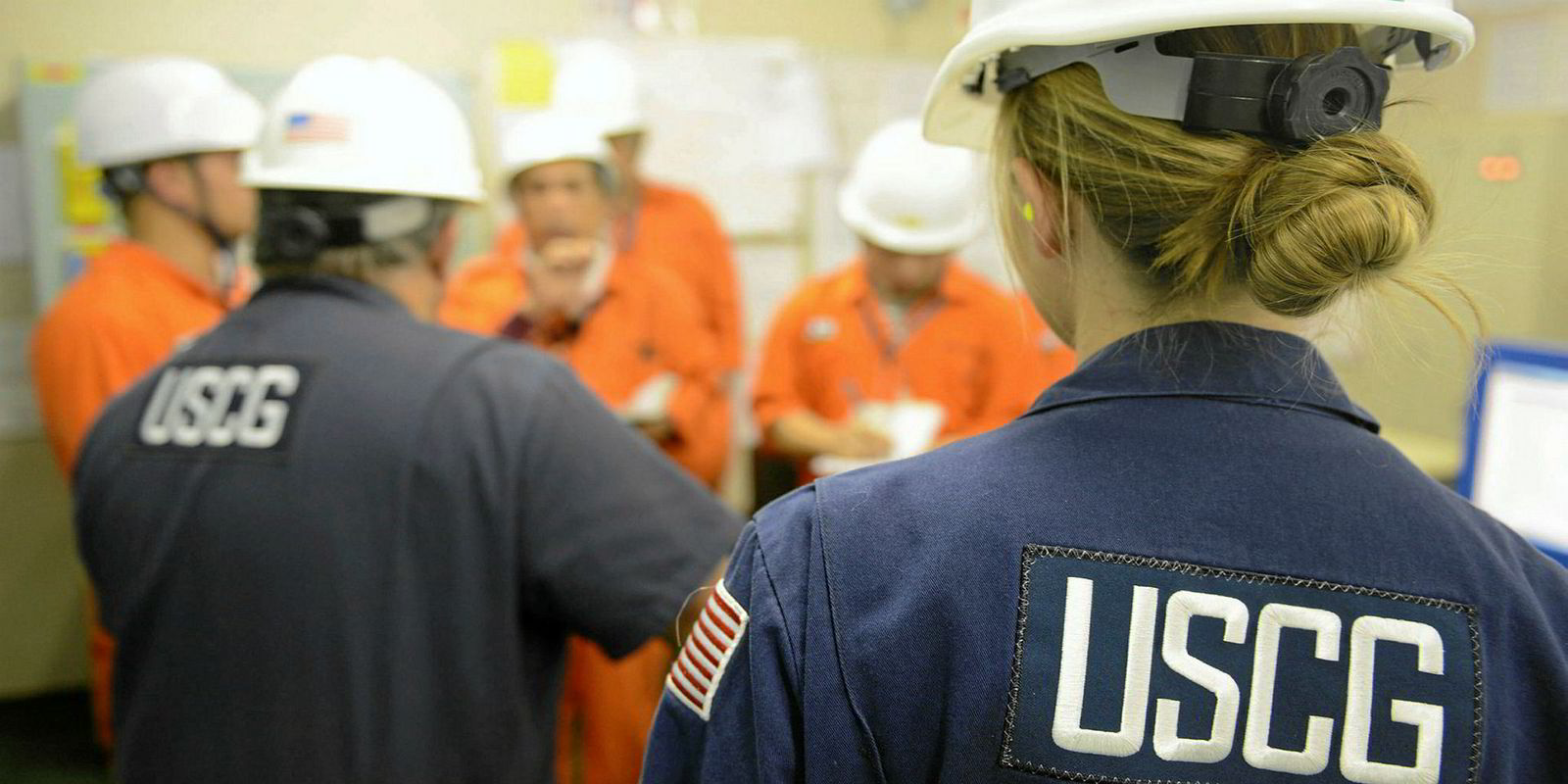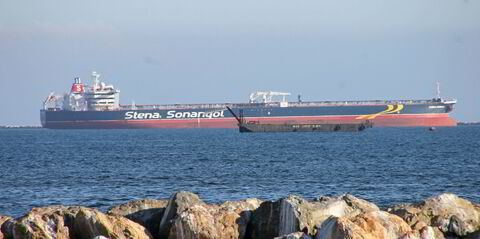Jaroslav Hornof did what he was supposed to do: he reported to his employer that he had found evidence that a former chief engineer on his German-controlled bulker had illegally discharged bilge water into international waters.
But not long after, it was Hornof who faced a warrant for his arrest.
The Czech third engineer is among mariners who have been held as witnesses in hotels across US port cities — some of them hungry for a whistle-blower award, some yearning to return home — as the government continues its pursuit of shipping companies that it alleges dump pollutants into international waters.
Few would criticise officials’ efforts to prosecute wrongdoers. But the detention of crew members who are accused of committing no crime, along with authorities’ insistence that shipowners pay the crew’s upkeep during increasingly lengthy investigations and prosecutions, raise questions about whether these situations live up to the spirit of a key tenet of the US legal system: that people should rarely be held against their will, unless justice requires it.
Lawyers involved in such cases assert that within US law there is another way, one which would allow these seafarer witnesses to give their testimony quickly, return to home or work, and in some cases even still collect a reward if a conviction is secured.
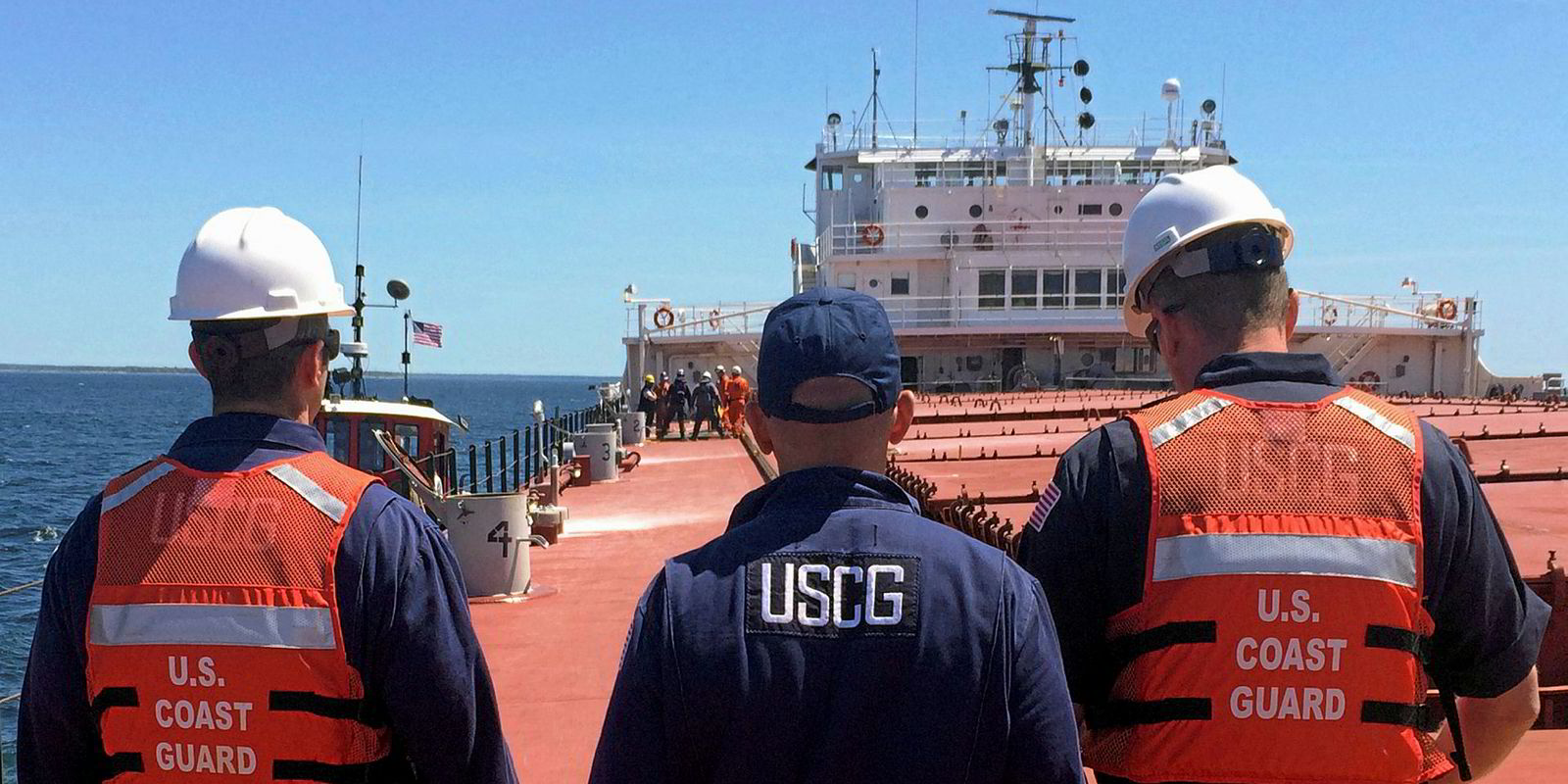
In the case of Hornof and his fellow crewmen on the slurry carrier Marguerita, even asking to return home from the state of Maine was enough to lead to an arrest warrant.
Four crewmen who were onboard the ship sought to leave the US but were willing to give their testimony in the case.
The ship’s owner, Germany’s MST Mineralien Schiffahrt Spedition und Transport, is fighting charges in a federal court in Maine alleging that it falsified records onboard the vessel to hide oily discharges.
The case began when Hornof reported to his employer the alleged bilge discharge by the chief engineer, who had departed the ship. Legal papers show that MST then disclosed the discharge to US officials, leading the ship to be detained at its first port of call.
“A well-coordinated commando-like raid, staffed with no less than 13 federal agents, including specialised criminal investigators, was lying in wait at the Portland dock with the sole purpose of searching for evidence of a crime and commandeering a pirate’s booty from [MST],” George Chalos, the Chalos & Co lawyer for the shipowner, has told the court in the criminal case.
According to papers filed by Edward MacColl of Portland law firm Thompson, Bull, Furey, Bass & MacColl, officials put the crewmen through several phases of what he describes as illegal detention after an inspection turned up evidence of alleged oil dumping by the vessel, whose owner had pleaded guilty in a pollution case in 2016 and was still under a three-year probation.
MacColl argued in court that the law allows authorities to revoke shore visas for the men, including some who were at the end of their contract and poised to fly home, even though that action was allegedly outside the reasons officials can do so: for situations in which they fear a mariner will seek to stay in the US or is not a bona fide crew member.
The crew were then allegedly forced off the vessel and had their passports confiscated, which their lawyer claimed was illegal and part of a coordinated effort by the Department of Justice, US Coast Guard, and Customs and Border Protection.
Shortly after the vessel detention, one crewman filed a writ of habeas corpus to secure his freedom, and the government responded by seeking a warrant for his arrest as a material witness.
Similarly, when Hornof asked for a court order allowing him to return home to comfort his wife after the death of her mother, he too was slapped with a warrant.
This happened despite his offer to continue cooperating with prosecutors, and even though he showed up earlier the same day to testify before a grand jury but was turned away, with the government “falsely claiming that the grand jury simply did not have enough time to hear from him”, according to MacColl’s filing.
“It had a bad influence on the relationship with my wife, because during the time I was in the US she had a difficult time: she took care of our three-year-old son, she was pregnant and her mother died. I didn’t know when I could come back to help her,” Hornov tells TW+.
Plus, he says, the time spent in a hotel in Maine didn’t count as sea time, and he was not able to secure enough time in the engine room to register for examinations for a promotion from third to second engineer. “That’s why my career will be delayed for a year.”
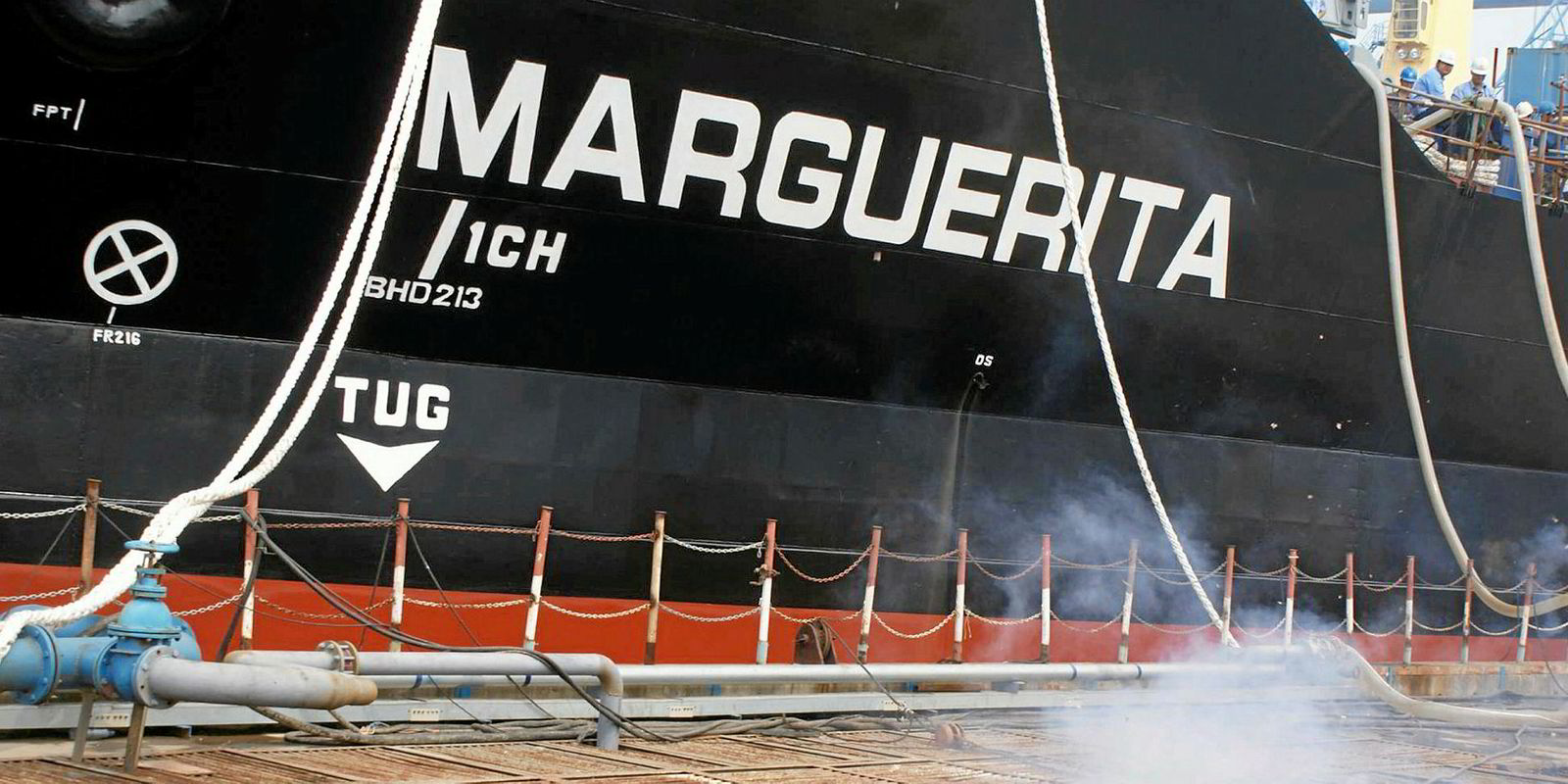
MacColl was ultimately successful in securing a judge’s order to end the men’s detention. The crew members gave testimony, then flew home more than two months after their ship had been detained. But before leaving, they were served with subpoenas to testify further, leading to fears that they risk their jobs because of the need to return to Maine to testify at trial or face arrest at their next US port of call if they do not comply.
Other crews, however, have remained in the US many months longer, as cases are known to last well over a year.
When contacted by TW+, crew members involved in such cases were unwilling to speak for fear of affecting the status of their cases.
Stephen Simms, a maritime lawyer at Simms Showers who has represented crew members in such cases, recalled a whistle-blowing seafarer held for 10 months despite his desire to return home to his young child, a period that was longer than the sentence of the D’Amico chief engineer who was ultimately jailed.
“I think they are treated horribly,” Simms says of seafarers in such cases.
Mariners who are serving as witnesses in pollution cases should be offered independent representation, he says, and the government should make it clear that appointed lawyers are not permitted to represent them in collecting a whistle-blower award — communications that the former prosecutor says are not happening now.
Lawyers involved in these cases say federal prosecutors want to keep seafarers in the US as witnesses to ensure they will testify at trial.
But the law affords an alternative to detaining them: lawyers from both sides can take a deposition and let the mariners return home or to their jobs. In fact, the US material witness statute states that witnesses should not be detained if their testimony can be “adequately secured” by deposition.
“The government should recognise that it’s keeping these seafarers away from their families for extended periods of time in a strange place,” Simms says. “They should take the evidence as quickly as possible and move the case along as quickly as possible.”
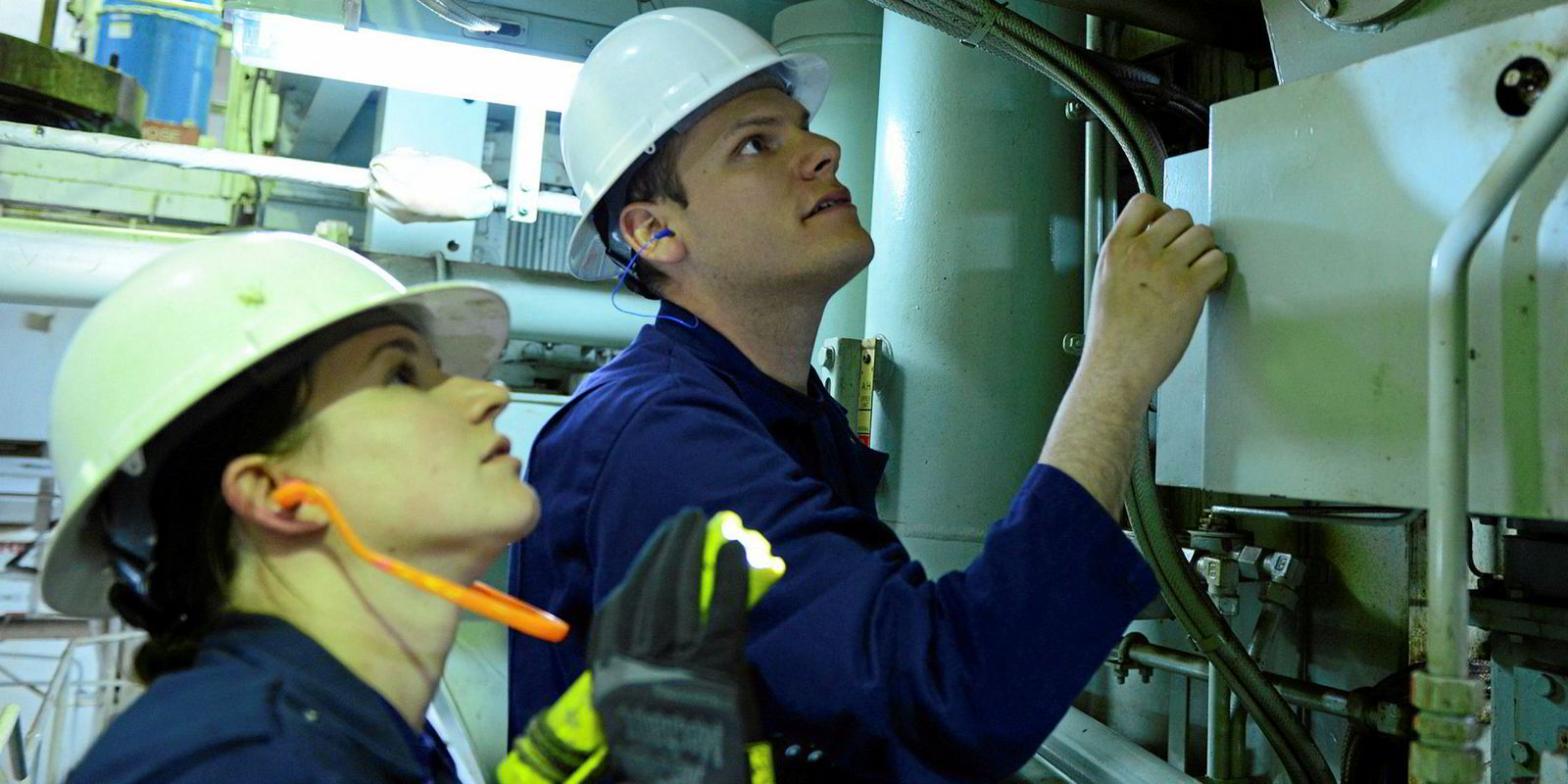
Some who represent shipowners in these discharge cases are doubtful that crew members participating as witnesses are so eager to go home. After all, many expect to get a reward in exchange for their testimony.
But shipowners, too, might benefit from speedy depositions to end these crew detentions.
As in the Marguerita case, US officials typically push for so-called security agreements, in which shipowners hand over crew passports to secure release of the vessel, in addition to paying crew wages and accommodation during the investigation that follows.
That makes the investigations costly for shipowners and managers, which incur costs for each day that they claim innocence. This has been criticised by some lawyers for forcing shipping companies to pay the cost of the investigation against them, even though they have not been found guilty.
Chalos has long been critical of the way his government offers rewards to seafarers who inform on their employers in pollution cases. He argues that the current system creates incentives for crew to wait until reaching a US port to report discharges, rather than immediately following internal reporting procedures.
“The ambition of deterrence is not achieved, because it is encouraging people to keep secret, hoping to come to the US,” he says.
But when it comes to crews that are kept across America, he says the Justice Department should be reporting the detention of foreign nationals, and judges need to be more involved in overseeing these detentions.
“They should be more proactive about setting some time limits, time limits to either progress the case to trial... or time limits to get their charging documents in order and take the depositions of the crew and allow them to go home,” Chalos says.
